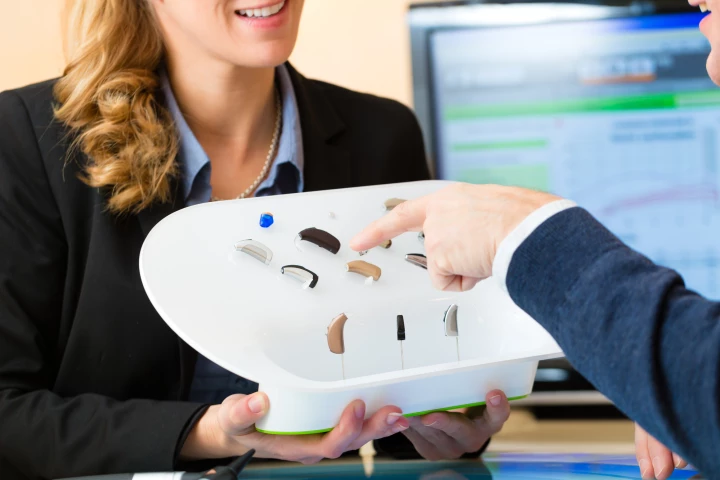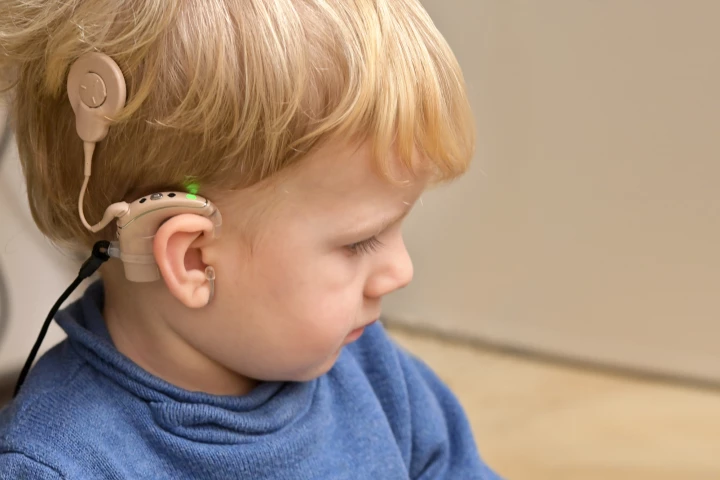Hearing Impaired
-
The ringing, rushing sound of tinnitus is a complex condition. It's caused by a range of factors, so there's no known one-size-fits-all treatment. But researchers are reporting excellent results with a combination treatment in a smartphone app.
-
The US FDA has established a new category of over-the-counter hearing aids. The move comes as part of a push by the US government to make healthcare more affordable, allowing millions of people to buy low-cost hearing aids without prescription.
-
Researchers at the Salk Institute have made a breakthrough that could lead to new treatments for genetic hearing loss. Gene therapy that delivers a particular protein can ensure faulty hair cells grow correctly, allowing for improved hearing.
-
A newly published meta-analysis has uncovered 10 new genetic variants that contribute to age-related hearing loss. The findings indicate a part of the ear known as the stria vascularis may play a part in hearing impairment.
-
An 11-year study has found that difficulty hearing speech in noisy environments may be an early sign of dementia. The next step will be to investigate whether treating mid-life hearing impairments can reduce the risk of dementia developing later on.
-
A landmark study is offering evidence to suggest age-related hearing loss is primarily caused by accumulated damage to inner ear sensory hair cells, and hair-regeneration technologies may offer new treatments to restore hearing loss in old age.
-
We've covered a number of motion-tracking gloves designed to translate sign language into audible speech, and a team of bioengineers at UCLA has just come out with another design that's more compact and lightweight than any we've seen previously.
-
Research led by the University of Arizona may have uncovered a new potential treatment target for tinnitus – not the ears but within the brain itself. The study suggests that neuroinflammation is to blame, and could be a new way to fix the problem.
-
Once we lose the sensory hair cells in the cochlea, they’re gone for good. But now researchers have found a way to regrow them in mice, potentially paving the way for more effective hearing loss treatments in humans.
-
A team of Swedish researchers have discovered three new types of neurons, which help carry auditory signals from the ear to the brain and may hold the secrets to treating hearing disorders like tinnitus.
-
As any new parent will quickly confirm, the sound of a crying baby can communicate a multitude of things, from "I'm hungry", to "I'm in pain". A team at UCLA has now developed an innovative app that can identify when a baby is crying and help decode what they're trying to communicate.
-
A small Australian company is hoping to blow multi-thousand-dollar prescription hearing aids out of the water. This US$449 pair of over-the-counter, Bluetooth hearing augmentation earbuds can test and adjust to your hearing, connect to your phone, and separate voices from background noise.
Load More











